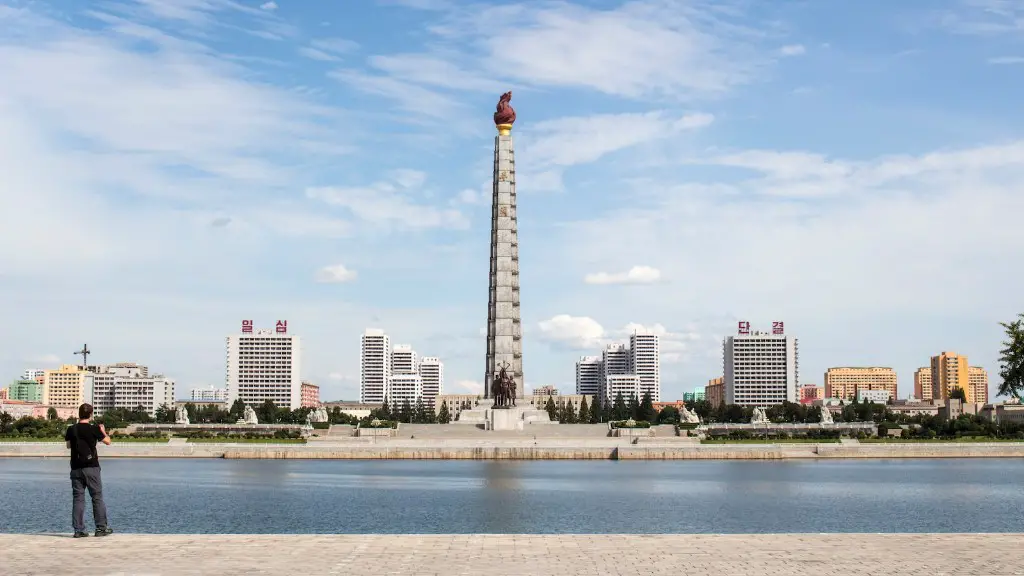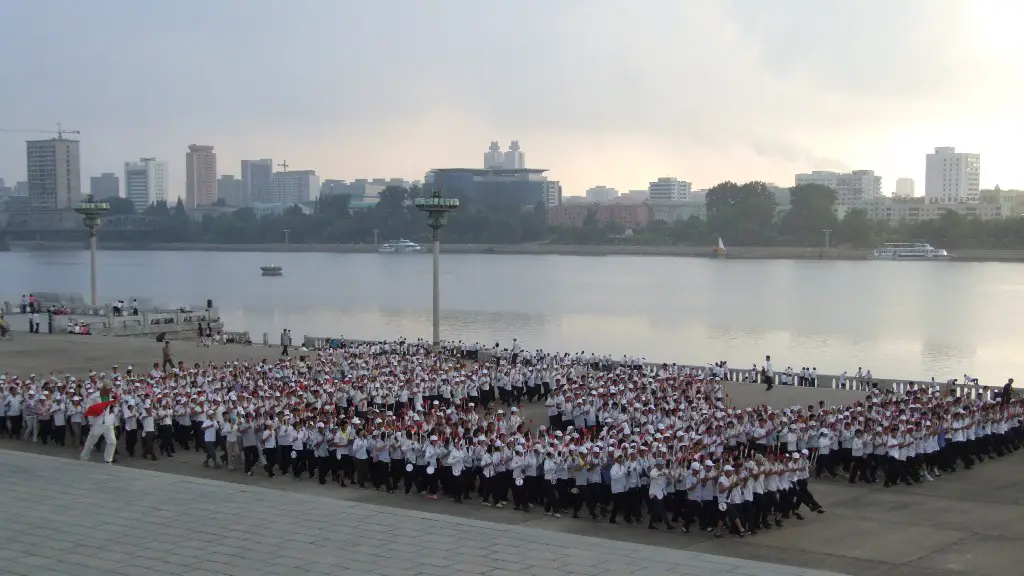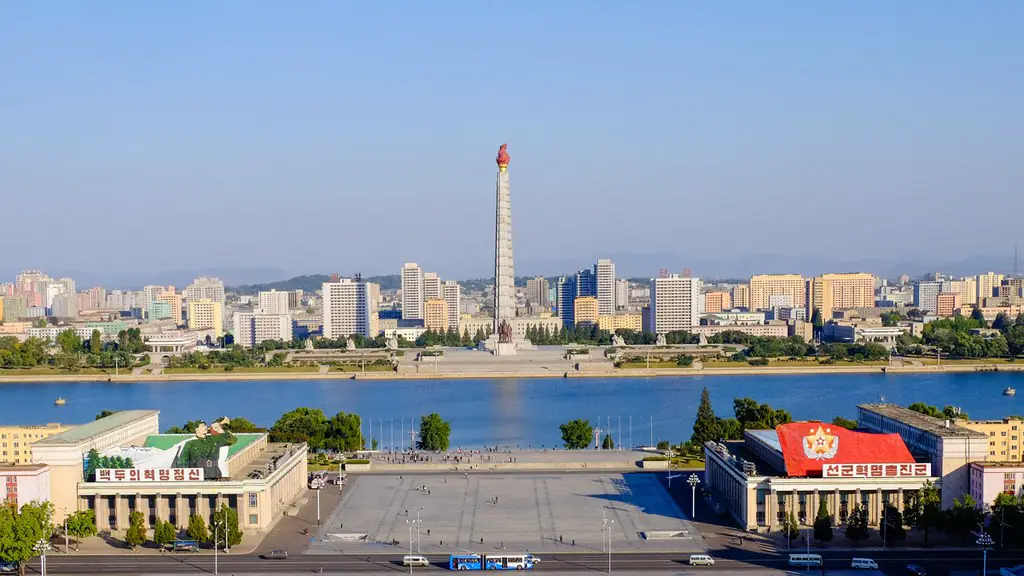North Korea is a country that is located in East Asia and it is considered to be a socialist state. The government of North Korea is a single-party state which is led by the Workers’ Party of Korea. The economy of North Korea is a centrally planned economy which is based on the Juche ideology which was developed by Kim Il-sung, the founder of North Korea.
The answer to this question is complicated and depends on how you define “socialism.” North Korea is technically a socialist state, but many people would argue that it does not adhere to the true principles of socialism. For example, North Korea has a highly centralized government and does not allow for any political dissent or free speech. Additionally, North Korea’s economy is not based on the collective ownership of resources and production, but instead on a strict hierarchy in which the state controls everything.
North Korea is an “independent socialist state” that holds elections, though they have been described by independent observers as sham elections. North Korea is a totalitarian dictatorship with a comprehensive cult of personality around the Kim family.
North Korea continues to nominally uphold Communism, but has replaced the Soviet economic model with a Chinese one. North Korea’s economy is heavily reliant on China, and it is estimated that 70-80% of North Korea’s trade is with China. North Korea has also been seeking foreign investment, particularly from South Korea and Japan.
What is North Korea’s political ideology
The Juche idea is based on self-reliance, independence, and self-sufficiency. It stresses the need for the North Korean people to be self-reliant in all aspects of their lives, including economic, political, and military affairs. The Juche idea also calls for North Korea to be independent from the influence of other countries, particularly the United States.
The North Korean economy is based on the principles of Juche, which emphasize self-reliance. The government centrally planning the economy and allocate resources to different sectors. The role of market allocation schemes is limited, although there has been some recent liberalization. The economy remains largely isolated from the rest of the world, and sanctions have led to significant economic hardship.
Marxist–Leninist states are those states which are governed by the Communist Party of China, Communist Party of Cuba, Lao People’s Revolutionary Party, and Communist Party of Vietnam. These parties follow the ideology of Marxism–Leninism, which was first put forth by Karl Marx and Vladimir Lenin.
While there are no modern-day countries with a “pure” socialist system, Cuba, China, and North Korea have strong elements of a socialist market economy. These countries have centrally planned economies, in which the government owns the means of production and distribution, and the prices of goods and services are determined by the government. However, these countries also allow some private ownership and market-based activity, which gives them a more mixed economy.
The United Nations General Assembly’s acceptance of the Republic of Korea as the “only lawful government in Korea” on December 12, 1948 was a significant turning point in the Korean War. Prior to this, the UN had been recognizing both the North and South Korean governments as legitimate. However, with the communist takeover of North Korea in 1949, the UN now only recognized the South Korean government. This ultimately led to the UN’s involvement in the Korean War, as they sought to protect the South from the North’s aggression.
The Chinese Communist Party (CCP) believes that China is not a capitalist country, despite the co-existence of private capitalists and entrepreneurs with public and collective enterprise. The CCP argues that it retains control over the direction of the country, maintaining its course of socialist development. While acknowledging the presence of private enterprise in China, the CCP contends that these businesses are ultimately subordinate to the state and the Party.
The difference between communism and socialism is that under communism, most property and economic resources are owned and controlled by the state (rather than individual citizens); under socialism, all citizens share equally in economic resources as allocated by a democratically-elected government.
Forced resettlement of citizens and whole families is a major issue for North Korean refugees who flee to China. They are often forcibly repatriated back to North Korea by authorities and are routinely beaten and sent to prison camps after repatriation. This is a major human rights violation and needs to be addressed.
What type of economy is North Korea?
A command economy is one in which the government centrally plans and controls the economy. This means that the government tells businesses what to produce, how much to produce, and how to distribute their goods and services.
North Korea operates under a command economy. The government centrally plans the economy and tells businesses what to produce, how much to produce, and how to distribute their goods and services. This system can be efficient in the short-term, but it can be inflexible and not very innovative in the long-term.
Corruption in North Korea is a widespread and growing problem in North Korean society. North Korea is ranked 174 out of 180 countries in Transparency International’s 2021 Corruption Perceptions Index (tied with Yemen and Afghanistan). North Korea’s government is extremely corrupt, and its people are increasingly experiencing the effects of this corruption. Government officials are often involved in bribery, embezzlement, and other forms of corruption. This corruption negatively impacts the North Korean people in many ways, including preventing them from receiving the resources and services they need and deserve. The North Korean government must take action to address this problem and protect its people from the harmful effects of corruption.
What type of society is North Korea
The Democratic People’s Republic of Korea (DPRK or North Korea) is an authoritarian state led by the Kim family for 70 years. The country is isolated from the rest of the world and its people suffer from widespread poverty and malnutrition. The government restricts freedom of expression and controls the media. The economy is centrally planned and the country relies heavily on international aid.
Historically, socialist political parties have often secured seats in the National Assembly in South Korea. However, socialism in South Korea is not currently represented in the National Assembly. The concept of “progressivism in South Korea” is distinct from socialism, and progressive parties have been successful in securing seats in the Assembly.
Which country is capitalism?
As of 2023, the Fraser Institute’s Economic Freedom Index ranks the top capitalist countries as Singapore, New Zealand, Australia, and Switzerland. These countries are characterized by high levels of economic freedom, including free markets and low levels of government intervention. In addition, these countries also have high levels of economic growth and prosperity.
Socialism is an economic system where the means of production are owned and controlled by the community as a whole. The main goal of socialism is to create a society where everyone has an equal chance to succeed.
Capitalism is an economic system where the means of production are owned and controlled by private individuals. The main goal of capitalism is to create a society where people can earn a profit from their work.
Conclusion
No, North Korea is not socialist.
There is no definitive answer to this question as it is difficult to accurately assess the political and economic system of North Korea. However, some experts believe that North Korea does not adhere to traditional socialism ideals, but instead operates under a unique system that is based on the personal philosophy of its late leader, Kim Jong-il.





